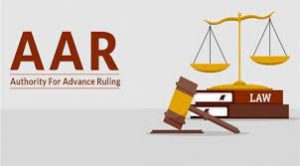 The Authority for Advance Rulings, Tamil Nadu in the case of M/S. CRIMSON DAWN APARTMENT OWNERS WELFARE ASSOCIATION vide Case No. TN/16/ARA/2025 dated 07.05.2025, ruled that GST is payable on corpus/sinking/capital fund collected for future services like painting and major maintenance. ITC can be availed on such taxable services but must be apportioned if the RWA also provides exempt services. Exemption of ₹7,500/month/member is applicable only to regular monthly maintenance and not to one-time contributions.
The Authority for Advance Rulings, Tamil Nadu in the case of M/S. CRIMSON DAWN APARTMENT OWNERS WELFARE ASSOCIATION vide Case No. TN/16/ARA/2025 dated 07.05.2025, ruled that GST is payable on corpus/sinking/capital fund collected for future services like painting and major maintenance. ITC can be availed on such taxable services but must be apportioned if the RWA also provides exempt services. Exemption of ₹7,500/month/member is applicable only to regular monthly maintenance and not to one-time contributions.
Facts of the Case: The Applicant is a residents welfare Association formed by individuals/flat owners. The applicant is having 120 members and engaged in providing maintenance & repairs of common areas of the apartments such as the corridors, garden, play area, pathway, clubhouse, swimming pool, gymnasium, electric equipment etc. Based on the area occupied by the members, maintenance charges at a specified rate not exceeding Rs. 7,500/- per month per apartment towards maintenance charges and this collection is done on quarterly basis.
Further, the applicant collects ‘Corpus fund’ or ‘Sinking fund’ for specific purposes distinct from regular maintenance activities. This fund is intended to cover planned or unforeseen capital expenses in the future such as painting the exterior/common area, repairing/replacing major equipment like lifts and generators. This fund is maintained separately from regular maintenance charges and are designated for their specific purposes as outlined in the apartment’s by-laws. As per the existing practice, the applicant account the collections as a liability in the balance sheet of the books of accounts of the association.
Issue: Whether the collection of corpus fund / sinking fund / capital contribution from residents by a housing society for future use (e.g., painting, building maintenance) is liable to GST. If charged to GST, what is the rate and SAC Code. Can ITC be claimed on GST paid on inputs/services for corpus fund activities.
Ruling: The AAR, Tamil Nadu stated that collecting funds from members for a specific purpose qualifies as consideration under Section 2(31). As the funds are used for rendering future services, it is not a security deposit but an advance, making it taxable under GST. Provision of facilities or benefits by a society to its members for consideration (including subscription) is included within the definition of “business.” Therefore, RWA activities are in furtherance of business under the GST law.
Further, stated that though Sinking/ corpus fund is for future use, this is not treated as a “deposit” because it’s ultimately appropriated for supply of services. Therefore, deemed to be advance payment for future services and hence subject to GST when received.
Also, Exemption Notification under Entry No. 77 of Notification 12/2017-CT (Rate) provides exemption for services by a non-profit body to members if contribution does not exceed ₹7,500/month/member. This exemption only applies to regular monthly maintenance charges and not to one-time corpus/sinking fund collections, which are considered separately.
Regarding ITC implications, the AAR stated that since the society provides both taxable and exempt supplies, input tax credit (ITC) is available proportionately. ITC on inward supplies used for taxable output services (like painting funded through corpus fund) can be claimed.


